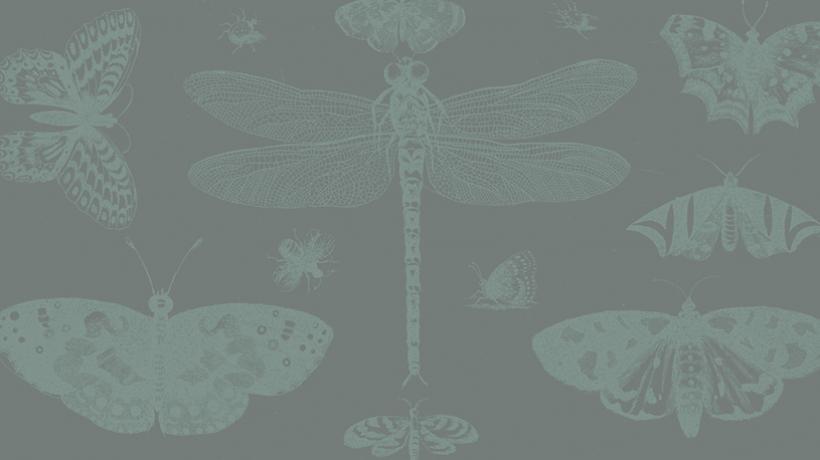Past Events by Year
December 2022
- 19:00 to 20:30
- Reading Group
"Childbirth Technologies"— Reading Group
Organizer(s)AddressMax Planck Institute for the History of Science, Boltzmannstraße 22, 14195 Berlin, Germany
RoomZoom/Online Meeting Platform- 15:00 to 16:30
- Seminar
Adaptation and Norming of the Wechsler Intelligence Scale for Children (WISC) in Norway: 1970s to the Present
Organizer(s)- Lara Keuck
- Steeves Demazeux
- 11:00 to 12:30
- Colloquium
Between Transcultural Disease and International Diagnostic Concept: The International Pilot Study of Schizophrenia (1965-1973)
Organizer(s)AddressMax-Planck-Institut für Wissenschaftsgeschichte, Boltzmannstraße 22, 14195 Berlin, Germany
- 14:00 to 15:30
- Lecture
Ascent of Chinese Universities in World Rankings—Global Ambitions, Local Governance?
AddressMax Planck Institute for the History of Science, Boltzmannstraße 22, 14195 Berlin, Germany
RoomZoom/Online Meeting Platform- 12:00 to 13:30
Modelling the Process of Knowledge Accumulation in the Early Modern Period
- 16:00 to 20:00
- Memorial Event
Klaus Heinrich Memorial Event
- Dept. I
- Several Speakers
- Jürgen Renn
- Lorenz Wilkens
- Karl-Heinz Kohl
- Monika Rinck
- Manfred Bauschulte
- Wolfgang Albrecht
- Jürgen Werth
- Hanns Zischler
- Vladimir Stoupel
- 12:00 to 16:15
- Workshop
Typologies of East Asian Maps in a Global Perspective
Organizer(s)AddressMax Planck Institute for the History of Science, Boltzmannstraße 22, 14195 Berlin, Germany
RoomZoom/Online Meeting Platform- 14:00 to 15:30
- Colloquium
Open Science in University–Industry Research Collaboration in China: State of Affairs at the Policy-Level and Preliminary Evidence From the Field
Organizer(s)AddressMPIWG, Boltzmannstraße 22, 14195 Berlin, Germany
RoomRoom 215/Online
November 2022
- 15:30 to 17:00
- Workshop
Animal Materials as Multiple: Historical Problems in "Reading Animals"
Organizer(s)AddressHarnack Haus, Ihnestraße 16-20, 14195 Berlin, Germany
RoomLynen Room- Workshop
Experiencing Nature through Old and New Epistemes around the Globe
Organizer(s)- Tracy Wietecha
- Katja Krause
- RAINER GODEL
AddressDeutsche Akademie der Naturforscher Leopoldina e. V. – Nationale Akademie der Wissenschaften, Deutsche Akademie der Naturforscher Leopoldina e. V. – Nationale Akademie der Wissenschaften, Jägerberg 1, 06108 Halle (Saale), Germany
- 16:00 to 17:30
- Seminar
Animal Intelligence and Animal Character in Aristotle’s "Historia Animalium"
- Max Planck Research Group (Premodern Sciences)
- Christof Rapp
AddressMax-Planck-Institut für Wissenschaftsgeschichte, Boltzmannstraße 22, 14195 Berlin, Germany
- 09:00 to 10:00
- Colloquium
Magnifying Insect Histories
- Dept. III
- Several Speakers
- Salka'Tuwa Bondoc Mafla
- Dominik Hünniger
- Diogo de Carvalho Cabral
- Frederico Freitas
- Luísa Reis-Castro
- Jude Philp
- Chakanetsa Mavhunga
- Christian Reiß
- Xiaoya Zhan
- Ivy Yeh
- Leah Lui-Chivizhe
Organizer(s)AddressMax Planck Institute for the History of Science, Boltzmannstraße 22, 14195 Berlin, Germany
RoomZoom/Online Meeting Platform- Lecture
Being between Scylla and Charybdis: Designing Animal Studies in Neurosciences and Psychiatry—Too Ethical to Be Ethical?
- Max Planck Research Group (Biomedical Sciences)
- Alexandre Surget
Organizer(s)- Lara Keuck
- Steeves Damazeux
AddressMax Planck Institute for the History of Science, Boltzmannstraße 22, 14195 Berlin, Germany
RoomZoom/Online Meeting Platform- 10:30 to 11:45
- Lecture
Towards a Systems-Based Historical Science
- Dept. I
- Ricardo Fernandes
Organizer(s)AddressMax Planck Institute for the History of Science, Boltzmannstraße 22, 14195 Berlin, Germany
RoomMain Conference Room & Online- 12:00 to 13:30
Digital Humanities Survey and Glossary of Methods, Tools, Approaches
- 19:00 to 20:30
- Reading Group
"Childbirth Technologies"— Reading Group
Organizer(s)AddressMax Planck Institute for the History of Science, Boltzmannstraße 22, 14195 Berlin, Germany
RoomZoom/Online Meeting Platform- 14:00 to 16:00
- Seminar
Interference Patterns of Religion and Science in Werner Heisenberg’s Popular Writings
AddressMax Planck Institute for the History of Science, Boltzmannstraße 22, 14195 Berlin, Germany
- 11:00 to 12:30
- Colloquium
Islamic Tibb and Socialist Biomedicine: Trajectories, Resiliency and Appeal of Indigenous Medical Practitioners in Soviet Central Asia
- Max Planck Research Group (Biomedical Sciences)
- Alisher Latypov
- 15:30 to 18:30
- Colloquium
Magnifying Insect Histories
- Dept. III
- Several Speakers
- Salka'Tuwa Bondoc Mafla
- Dominik Hünniger
- Diogo de Carvalho Cabral
- Frederico Freitas
- Luísa Reis-Castro
- Jude Philp
- Chakanetsa Mavhunga
- Christian Reiß
- Xiaoya Zhan
- Ivy Yeh
- Leah Lui-Chivizhe
Organizer(s)AddressMax Planck Institute for the History of Science, Boltzmannstraße 22, 14195 Berlin, Germany
RoomZoom/Online Meeting Platform

